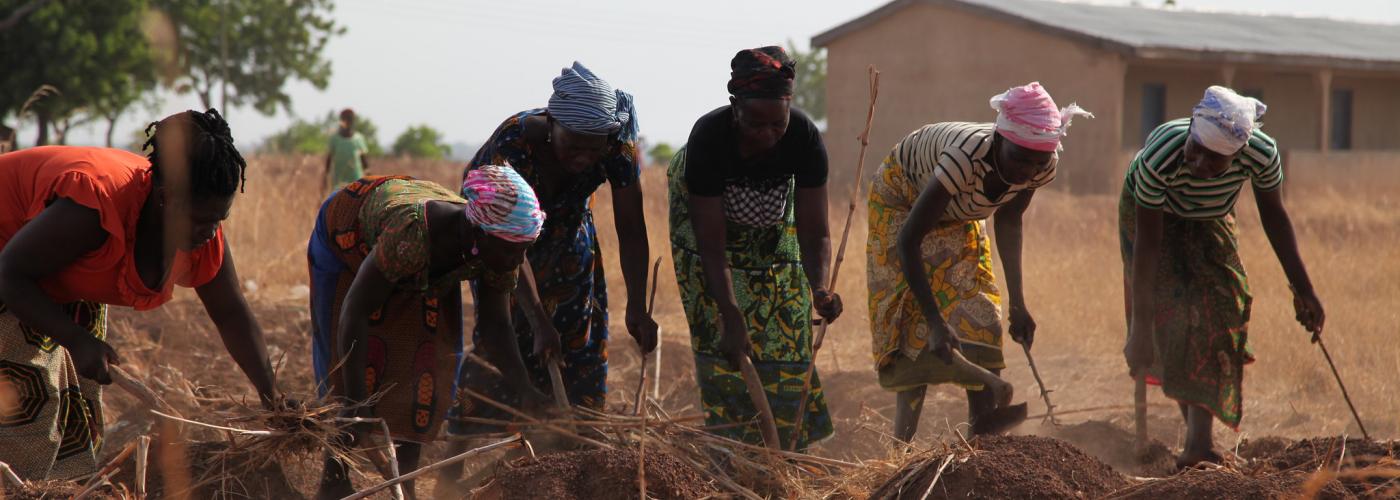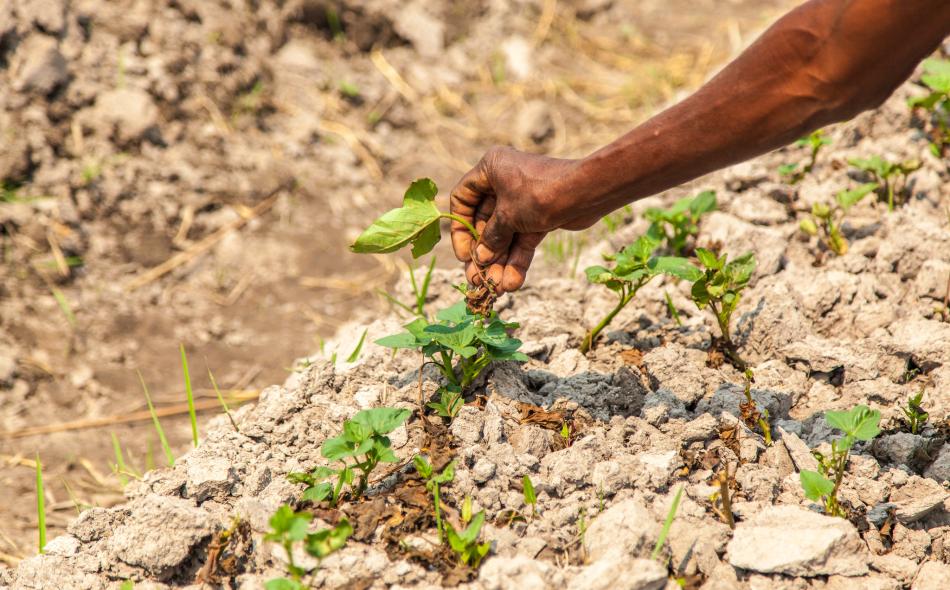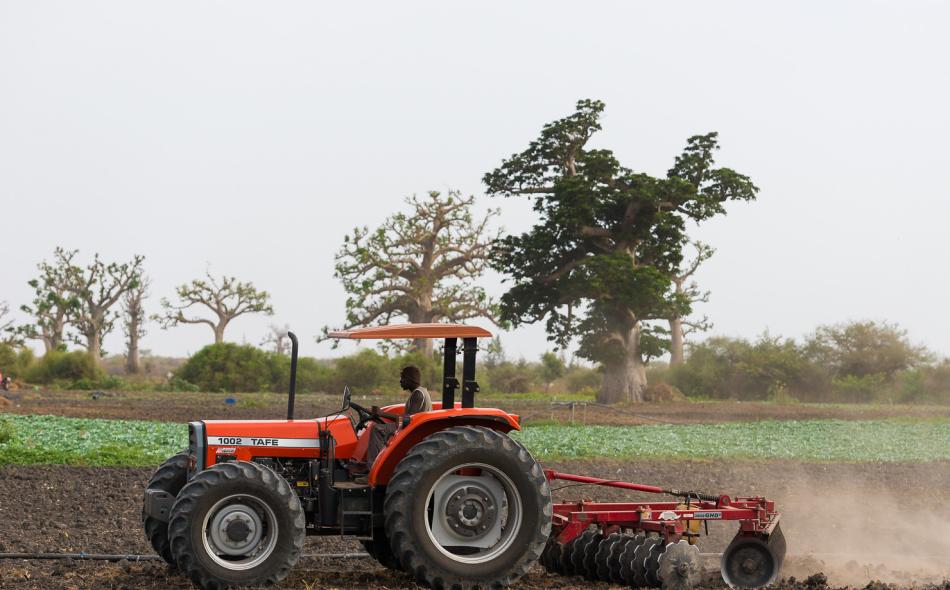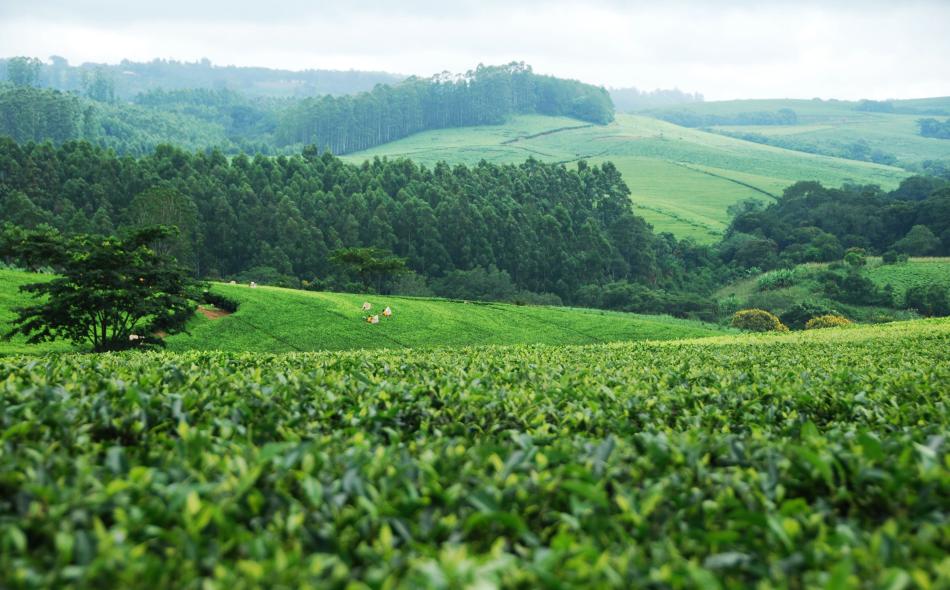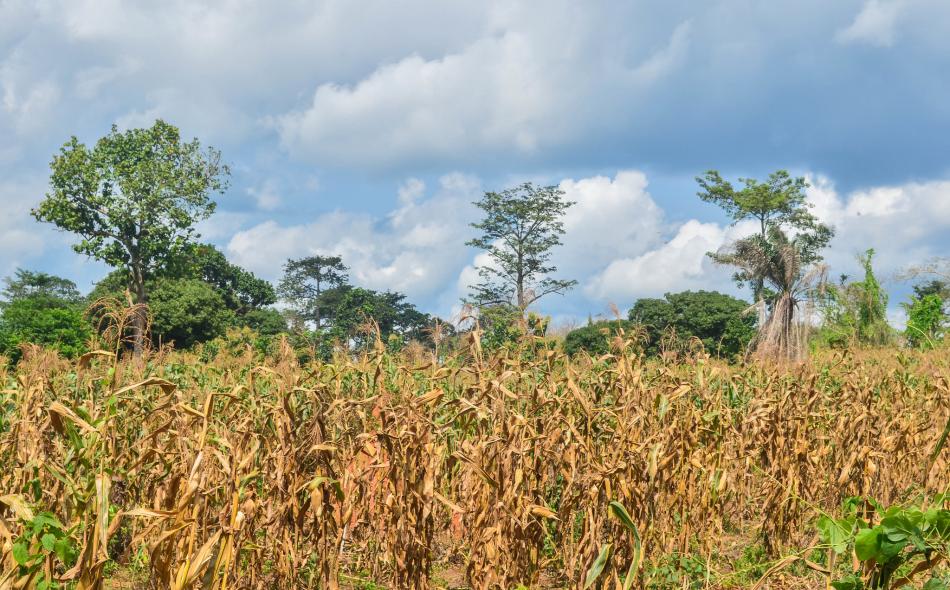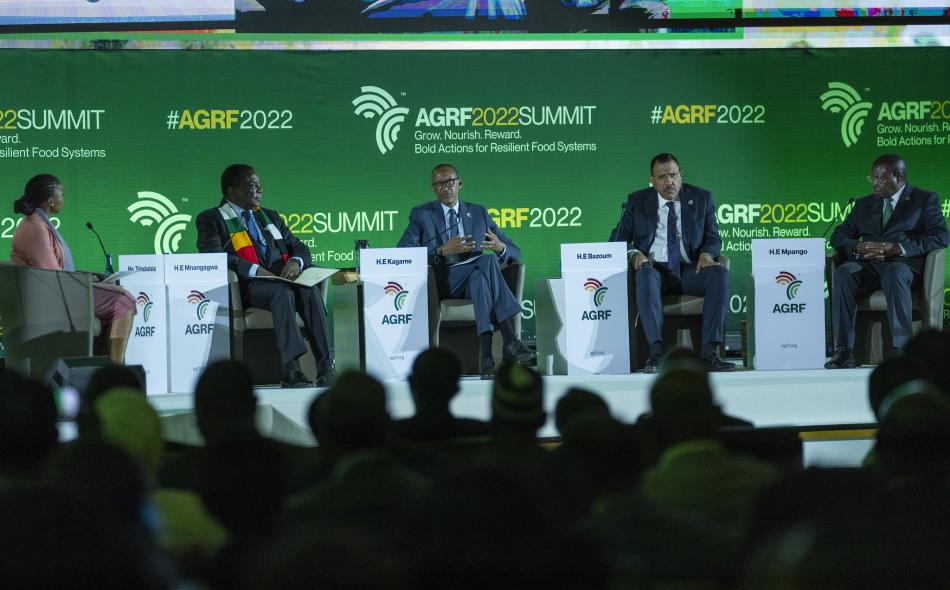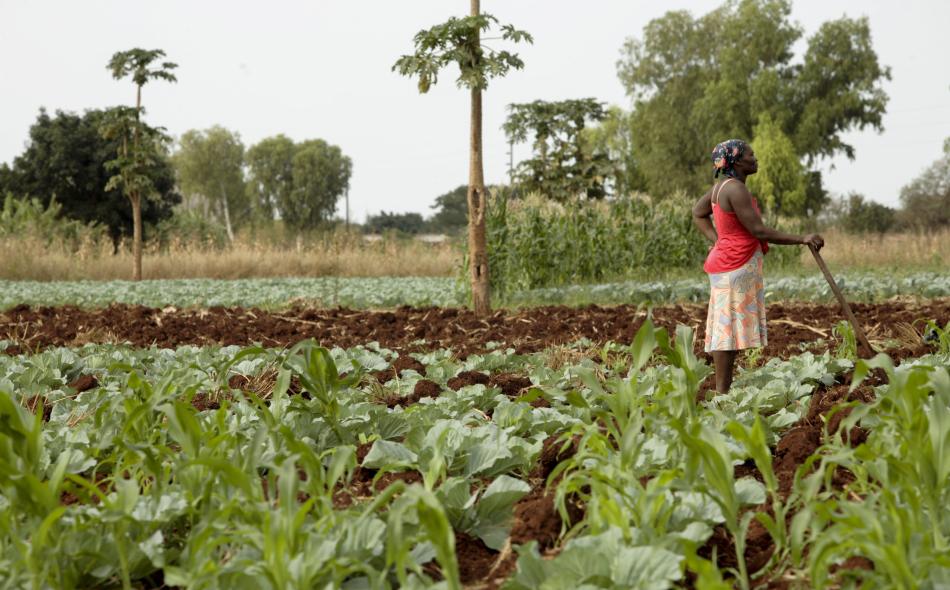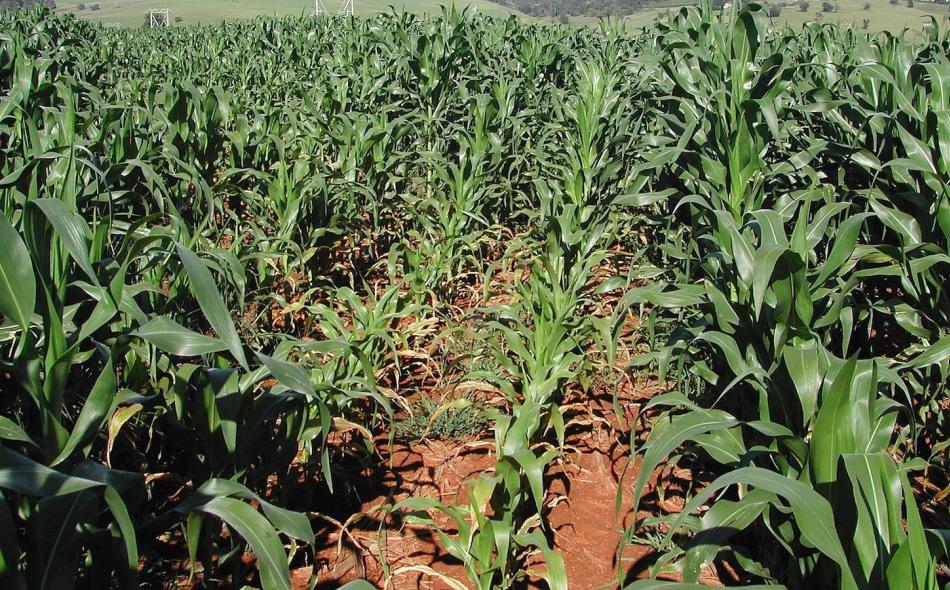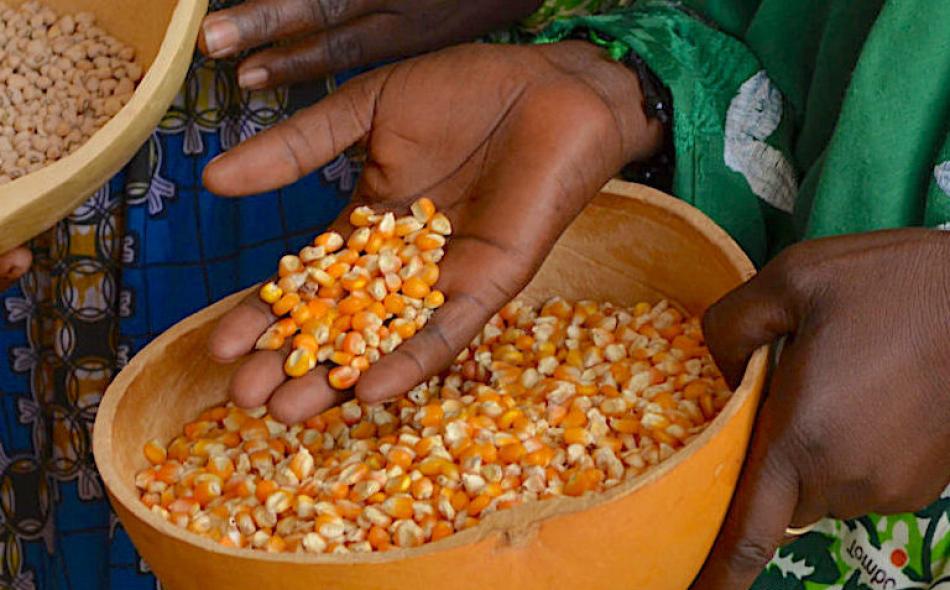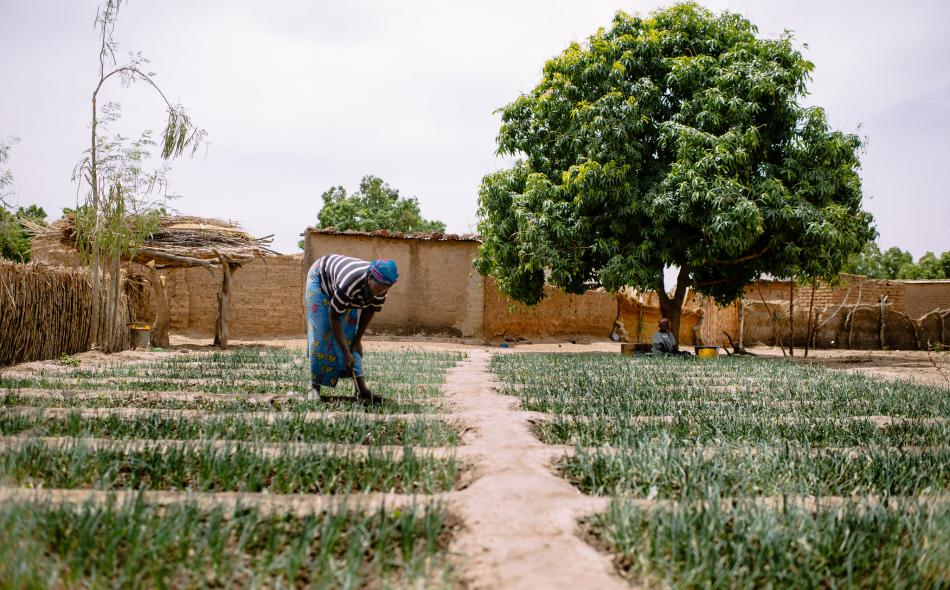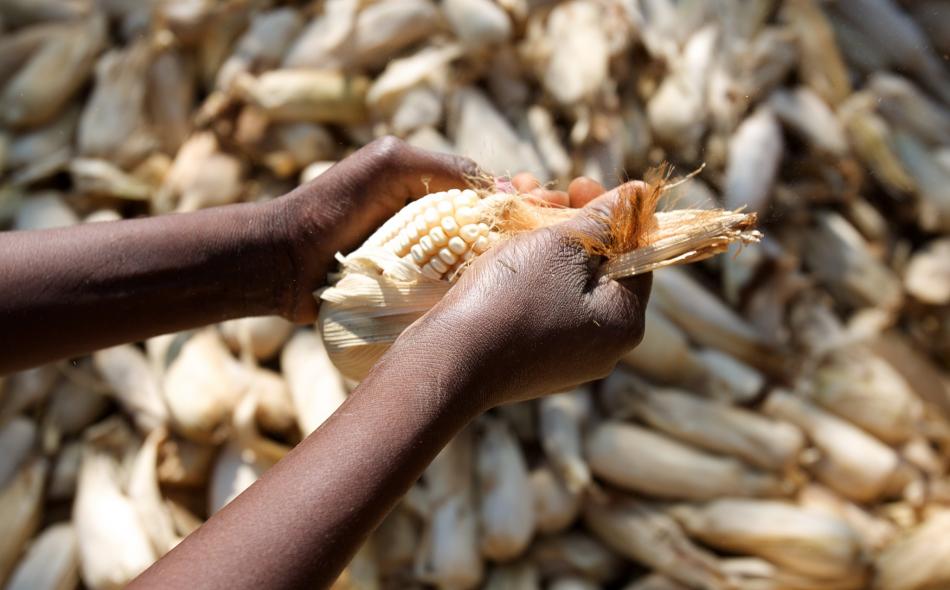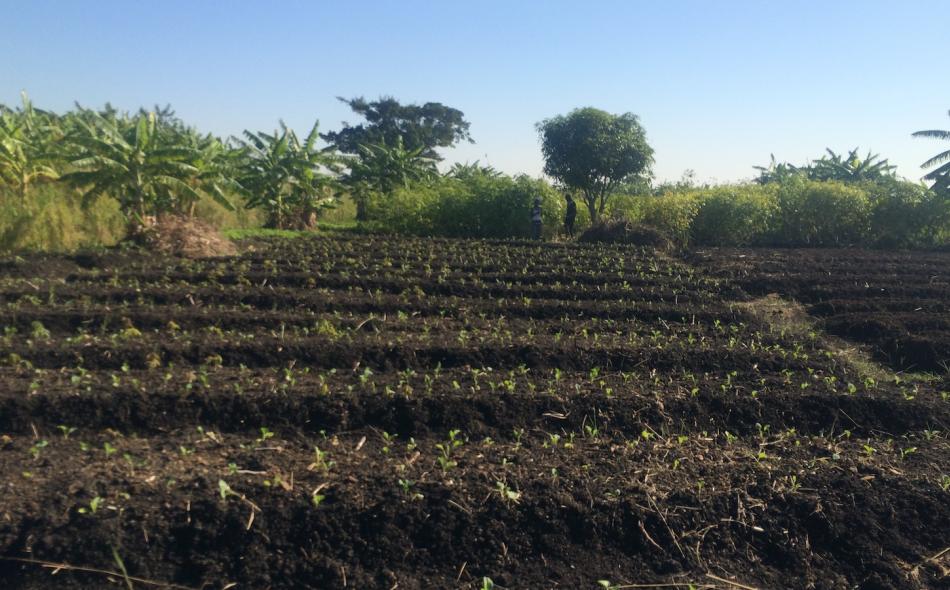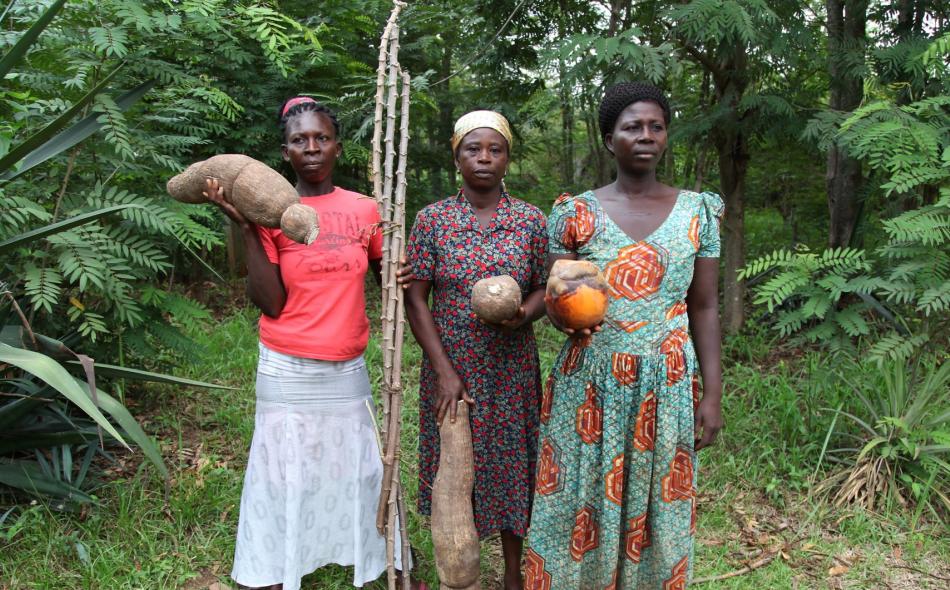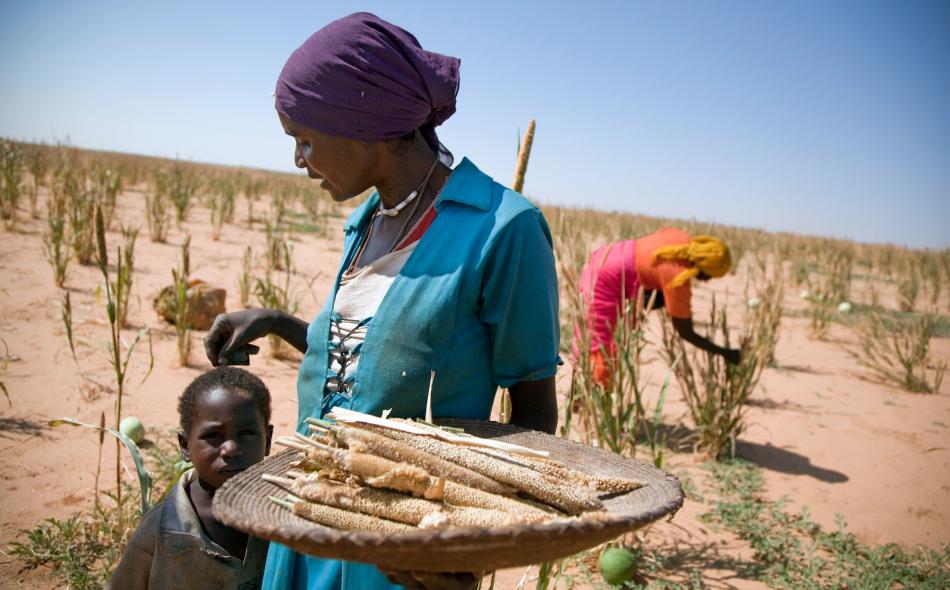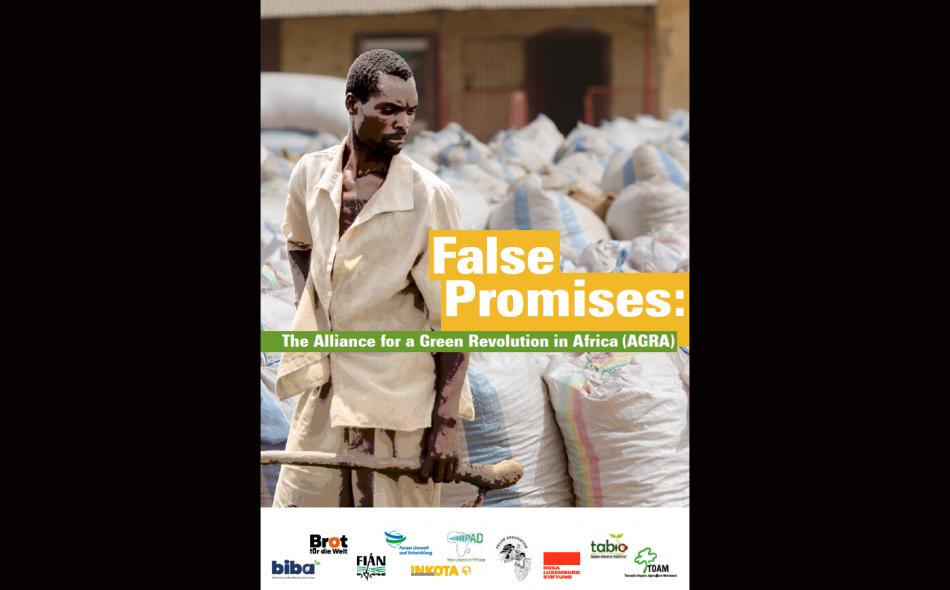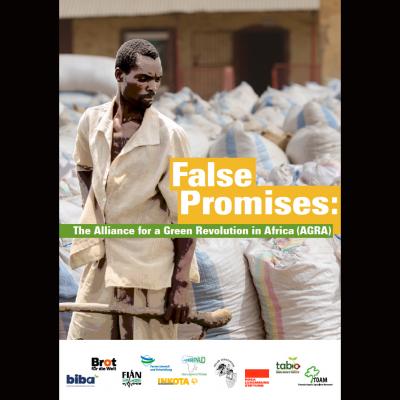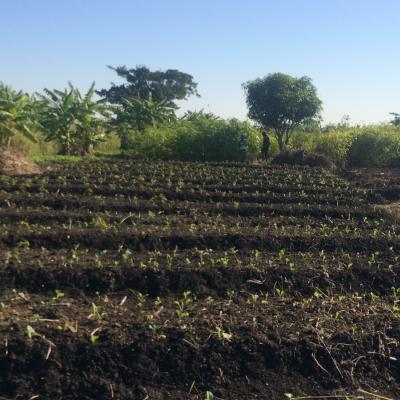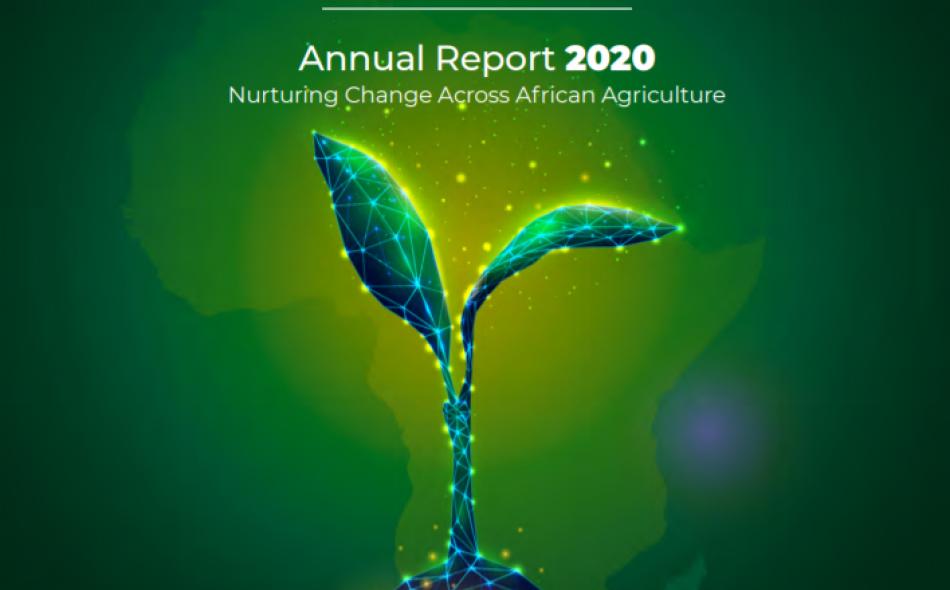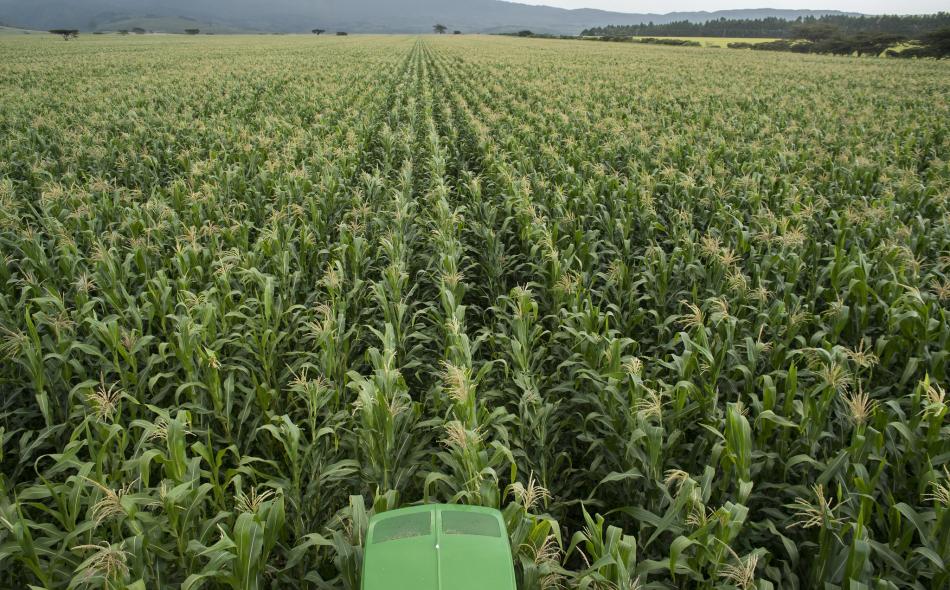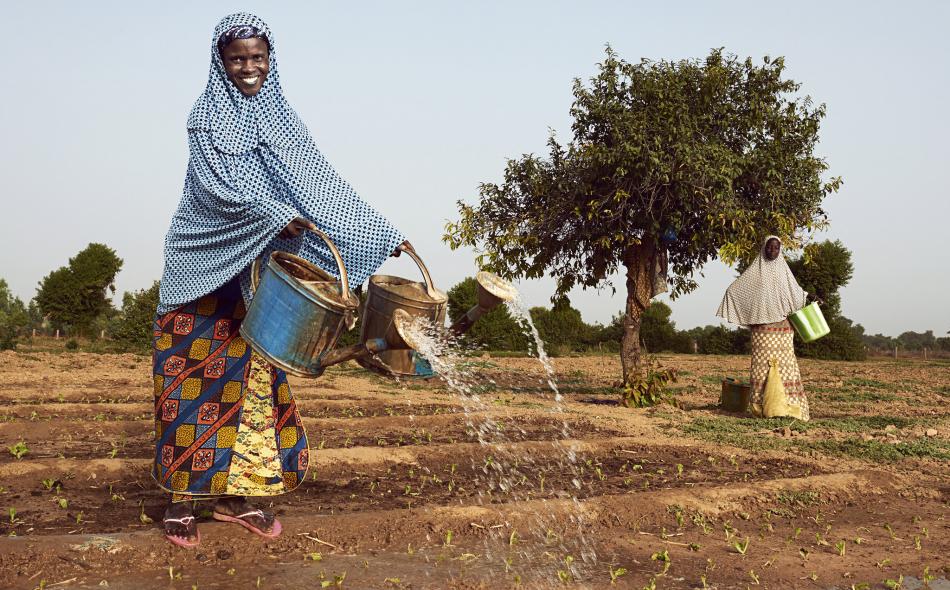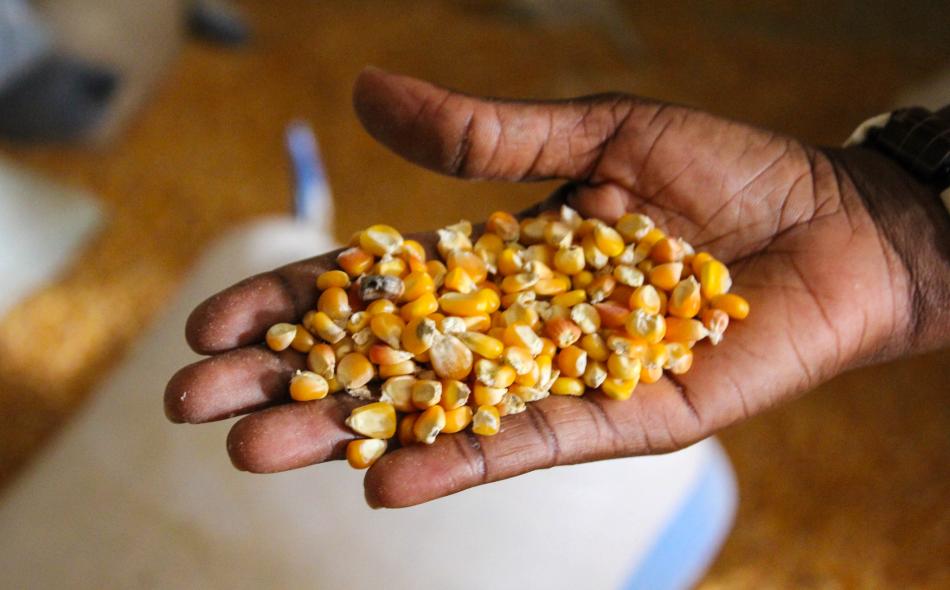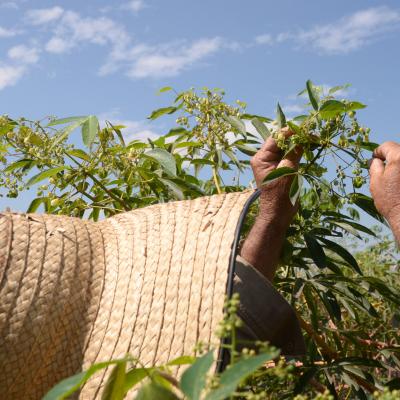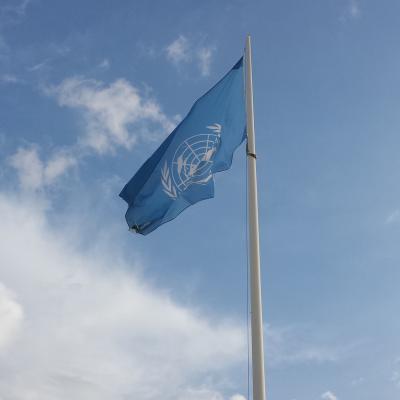The pressure continues to mount on donors to the Alliance for a Green Revolution in Africa (AGRA) to stop funding the failing 17-year initiative in favor of agroecological programs in Africa. African civil society and faith leaders greeted delegates to AGRA's 2023 Green Revolution Forum with an August 30 press conference decrying the exclusion of African farmer voices. (Watch the press conference, read the press release.) As IATP's Timothy A. Wise wrote for IPS News, AGRA is "Digging Africa Deeper into Hunger." There has been little change since a similar press conference the previous year highlighted donors' failure to respond to previous demands and calls to move Africa away from an unhealthy dependence on fossil-fuel-based fertilizers, the supposed catalyst for AGRA's productivity revolution.
A year earlier, African faith leaders had presented their open letter to the Bill and Melinda Gates Foundation demanding that it stop promoting industrial agriculture in Africa. They joined the Alliance for Food Sovereignty in Africa (AFSA) as a press conference to demand that donors stop funding AGRA.
According to research by IATP's Timothy A. Wise, the Green Revolution in Africa has failed to deliver on its goals of doubling productivity and incomes for 30 million small-scale farming households while reducing food insecurity by half by 2020. Far from reducing hunger, the number of undernourished people in AGRA's 13 focus countries increased 30% since AGRA's founding in 2006.
AGRA has offered no credible evidence of its success, yet its Board Chair defended the program in an opinion piece last year. AFSA responded with its own opinion piece: "Time to change course: The future is agroecology." IATP's Wise, who directs IATP's Future of Food project, published his own response to AGRA's opinion: "Time to change course, not double down on failing Green Revolution."
In February 2022, critics' warnings were confirmed by a donor-commissioned evaluation that concluded, "AGRA did not meet its headline goal of increased incomes and food security for 9 million smallholders.” IATP's Wise analyzed the evaluation and published a commentary calling for donors to stop funding AGRA. As US Right to Know reported, USAID quickly responded to the evaluation saying it would continue supporting AGRA.
African civil society and faith leaders responded with a March 30, 2022 briefing for U.S. congressional staff asking that Congress cut the funding for AGRA (see video and transcript of the briefing), a position summarized in Anne Maina's op-ed, "Congress Should Pull the Plug on USAID’S Failing African Green Revolution." Three representatives responded with an April 27 letter to the chairs of the House Appropriations Committee challenging continued funding for AGRA in this year's Global Food Security Act.
At the September 2022 Green Revolution Forum, AGRA announced a new five-year $550 million strategy for 2023-27 along with a "rebranding" that, remarkably, removes the words "green revolution" from AGRA's name. As IATP's Wise showed, such cosmetic changes fail to address any of critics' concerns about poor farmer impacts and the dangers of AGRA's promotion of fossil-fuel-driven agriculture. The Gates Foundation quickly pledged $200 million to AGRA, but IATP and allies continue to press other donors to pull away from the initiative.
Press coverage of the controversy has been widespread, including articles in Common Dreams, Seattle Times, Politico, Le Monde, InterPress Service, Kenya's Daily Nation and outlets in 13 other African countries. See a full list of media coverage here.
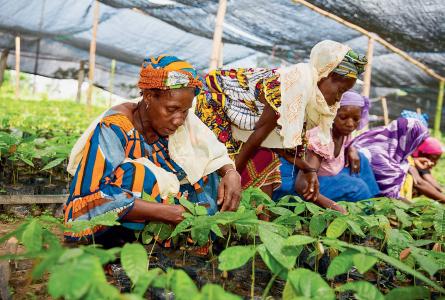

Latest Campaign News
Key Research and Findings
Controversy over 2022 donor evaluation:
- America’s green revolution is failing African farmers, Francesca de Gasparis and Fletcher Harper, The Hill, June 2, 2022.
- African Community Leaders Tell Congress: Stop Funding African Green Revolution, Timothy A. Wise, Food Tank, May 4, 2022.
- Gates Foundation agriculture project in Africa flunks review, Stacy Malkan, USRTK, March 17, 2022
- Donors must rethink Africa’s flagging Green Revolution, new evaluation shows (commentary), Timothy A. Wise, Mongabay, March 22, 2022
- Congress Should Pull the Plug on USAID’S Failing African Green Revolution, Anne Maina, Food Tank, March 29, 2022.
- African Faith Communities appeal to U.S Congress: “Stop funding industrial Agriculture ,AGRA is hurting Africa”, Farmers Review Africa, March 30, 2022.
- AGRA is failing farmers, but helping foreign corporations, CAGJ, April 4, 2022.
- AGRA: Still Failing Africa’s Farmers, IATP analysis, Tim Wise, March 4, 2022. (Read press release.)
- Devex: “AGRA has failed to improve Africa’s food security, report finds,” March 2, 2022.
Additional Research
- Africa’s Choice: Africa’s Green Revolution has failed, time to change course, IATP policy brief, July 2020 (Also available in French).
- Another False Start in Africa with Green Revolution Myths, by Timothy A. Wise with Jomo Kwame Sundaram, IPS News, April 20, 2021.
- Failing Africa’s Farmers: An Impact Assessment of the Alliance for a Green Revolution in Africa, GDAE Working Paper No. 20-01, July 2020.
- African Farmers: Key to Solving Malnutrition, Food Tank, July 18, 2020.
- Replacing Hunger with Malnutrition: Former UN official calls out failing African Green Revolution, IATP article, August 19, 2020.
- Failing Africa’s Farmers, Starving the Continent, IPS News, September 8, 2020.
- A few questions for AGRA on farming revamp, Kenya Business Daily, Sept. 9, 2020
- Africa at the Crossroads: Time to Abandon Failing Green Revolution, Million Belay and Timothy A. Wise, IPS News, September 23, 2020.
- Pressure builds on Gates Foundation, AGRA for accountability,” IATP article, October 13, 2020
- Gates Foundation’s Green Revolution Fails Africa’s Farmers, chapter in Navdanya International, “Gates to a Global Empire,” October 2020.
- Agricultural Revolution: “Gates Foundation is leading Africa to failure,” Tchak! Magazine (Belgium-French), October 21, 2020.
- AGRA Update: Withheld internal documents reveal no progress for Africa’s farmers, IATP article, February 25, 2021.
- Africa’s Green Revolution: Few gains, no transparency,” Kenya Star, March 8, 2021.
- Low farm yields, incomes dampen Africa’s green revolution dream, Business Daily, March 10, 2021.
African Civil Society Leaders' Voices for Change
- Abandon the disastrous green revolution model, Anne Maina, Daily Nation (Kenya), September 5, 2023.
- AFSA's “No decision about us without us!” press conference, August 30, 2023. Watch the press conference, read the press release.
- A Rude Awakening, KPFA Radio, radio interview with SAFCEI's Gabriel Manganyadze, September 1, 2023.
- AFSA press conference Sept. 1, 2022, with Anne Maina, Leonida Odongo, Ferdinand Wafula, Anuradha Mittal, and Gabriel Manyangadze.
- Africa Now WPFW radio on African Food Insecurity in Planetary Crisis, with Anne Maina, Ferdinand Wafula, and Timothy A. Wise, August 31, 2022.
- A Rude Awakening, KPFA 94.1 Radio, on AFSA Sept. 1 press conference, featuring Ferdinand Wafula, Sept. 9, 2022.
- African faith communities tell the Gates Foundation, "Big farming is no solution for Africa", Biz News TV, August 11, 2021.
- A Rude Awakening, 94.1 KPFA Radio, interview with Francesca de Gasparis, August 6, 2021.
- Africa Says, "I Can't Breathe": An African Civil Society Perspective on Systemic Racism, By Million Belay, Common Dreams, June 10, 2020.
- A Rude Awakening, 94.1 KPFA Radio, radio interview with Million Belay, July 2021.
- A Rude Awakening, 94.1 KPFA Radio, radio interview with Anne Maina, September 2021.
- A Rude Awakening, 94.1 KPFA Radio, radio interview with Francesca de Gasparis, August 2021.
- A Rude Awakening, 94.1 KPFA Radio, radio interview with Gabriel Manyangadze, October 2021.
AGRA’s Failure to Provide Data and be Accountable
Shifting Funding from AGRA to Agroecology
In Diversity There is Strength: Moving beyond the Green Revolution in Zambia
Resources
-
U.S. Congress must change course on Africa agriculture funding, IATP, June 6, 2022.
-
African groups want Gates Foundation, USAID to shift agricultural funding amid worsening hunger crisis, USRTK, September 8, 2021.
-
Critiques of Gates Foundation agricultural interventions in Africa, USRTK, September 2, 2021.
-
Bill Gates’ radical menu for food systems: ultra-processed foods, patents, monocrops, USTRK, May 26, 2021.
-
The next neocolonial gold rush? African food systems are the ‘new oil,’ UN documents say, USRTK, March 9, 2021.
-
Why we’re tracking Bill Gates’ plans to remake our food systems, USRTK, February 26, 2021.
-
How the Gates Foundation is driving the food system, in the wrong direction, GRAIN, June 17, 2021.
-
A Sting in the AGRA Tale: Independent expert evaluations confirm that the Alliance for a Green Revolution has failed, Rosa Luxemburg, July 2021
-
Hunger for Justice Series, S1 E3: Decolonizing Africa's Food Future [video] with Million Belay and Timonthy A. Wise, A Growing Culture, May 8, 2020
Media Coverage
Press coverage of the controversy has been widespread, including articles in the Seattle Times, Politico, Le Monde, InterPress Service, Kenya's Daily Nation, and outlets in 13 other African countries. (See a full list of media coverage here.)
Videos and podcasts
- AFSA press conference Sept. 1, 2022, with Anne Maina, Leonida Odongo, Ferdinand Wafula, Anuradha Mittal, and Gabriel Manyangadze.
- Lobby groups of African civil society and farmers call for an end to failed Green Revolution, Anne Maina on Kenya's Nation media in three-minute video on reasons for press conference, Sept. 2, 2022.
- Africa Now WPFW radio on African Food Insecurity in Planetary Crisis, with Anne Maina, Ferdinand Wafula, and Timothy A. Wise, August 31, 2022.
- Famine by October? Somalia & East Africa Face Humanitarian Crisis Amid Climate Change, Ukraine War, Democracy Now!, with Million Belay, Sept. 8, 2022.
- A Rude Awakening, KPFA Radio, on AFSA Sept. 1 press conference, featuring Ferdinand Wafula, Sept. 9, 2022.
- Global Food & Fertilizer Crisis, Timothy A. Wise, Pacifica Radio's COVID, Race & Democracy Show, Oct. 10, 2022.
- IATP's Uprooted podcast series: Talking COP27, Oct. 11, 2022, including segment with Timothy A. Wise on "climate-stupid agriculture" in Africa.
- Briefing for US congressional aides, video recording, March 30, 2022, with Million Belay, Francesca de Gasparis, Mutinta Ntekani, Anne Maina, Timothy A. Wise.
- The Alliance for Food Sovereignty in Africa (AFSA) held a press conference to demand that funding for the AGRA be stopped. Watch a video of press conference from September 2021.
- The Agribusiness Alliance for a Green Revolution Failed Africa, Long interview with Timothy Wise on the issue and the campaign, Naked Capitalism, October 20, 2021. (Full transcript with video).
- Our Food, Our Story, A 4-part event series organized by the Rosa-Luxemburg-Stiftung and partners, September 7, 2021.
- Did the Gates Foundation's Program to Feed Africa Fail?, Al Jazeera's "The Take" Podcast, July 28, 2021.
- CAGJ webinar with AFSA on food summit, September 23, 2021.
- Raj Patel: Climate, Conflict and Capitalism Drive Global Hunger. COVID Made It Worse, Democracy Now, September 23, 2021.
- Timothy A. Wise on The Checkout Podcast, April 12, 2022, Rethinking The Green Revolution.
- Timothy A. Wise presentation April 6, 2022, video, Iowa State University, Old Fertilizer in New Bottles: Selling the Past as Innovation in Africa's Green Revolution.

